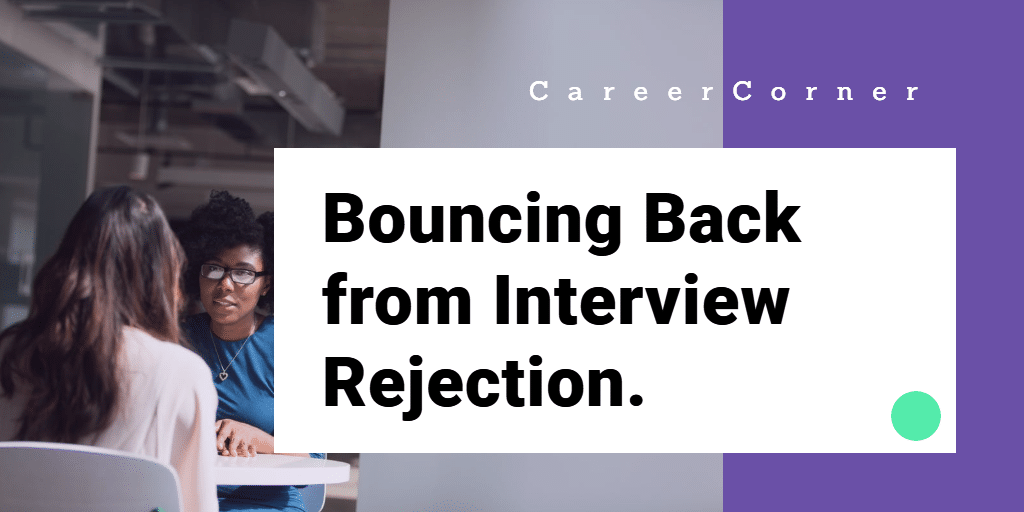Career Corner: Bouncing Back from Interview Rejection
The interview – the crucial turning point in any recruitment process that allows the potential employer and the potential employee to get a good sense of each other in person, asking any questions that haven’t been addressed, drawing out the wider story that exists beyond just a CV and a job description.
And sometimes, despite doing all the right preparation, things go wrong in the interview room. Everyone has off days. So what should you do if you’ve been interviewed for and subsequently rejected from a job that you know you’re qualified for? And how can you salvage the situation to make it a useful part of your career journey and not a sealed-off dead-end?
First, if you’re going to push back on an interview decision, you need to be able to concisely make a clear point about you being right for the job. Take the job ad or spec, take your CV, and make sure that there are no gaps in your experience, that you have the specific qualifications asked for, that you’ve previously demonstrated the requested skills. Compile all of that “proof” into one place – and be honest with yourself. If you review the job description and realise you are actually missing a key part of what they want, then you need to move on and make sure to develop that skill so you can add it to your resume before you next apply for a similar job.
Get in touch with the interviewer, or with your recruiter if they’re your point of contact – take as much detailed feedback as they’re able to give. If the door is firmly closed on the role, the most useful thing you can do is learn what went wrong. To that end, it helps to be very direct and ask for the key factors that prevented you from being advanced to the next stage of the process. If those turn out to be qualities that you do possess but didn’t get the chance to display during the interview, then explain as clearly and concisely how you have what they’re looking for, using solid examples from the information you’ve compiled.
It’s possible, in some cases, that your application will be reconsidered and showing you enthusiasm for this specific role can itself be decisive in changing the interviewer’s perception of you as a candidate.
During all these post-interview interactions, it’s vital to be polite and not come across as angry, bitter or demanding. The later stage of recruitment processes move fast and it may well be too late to be reconsidered for the exact role you interviewed for. While that does happen, what’s much more common is that a few months later a hiring manager will remember a passionate, friendly, well-qualified candidate who wasn’t quite right for that last role – but would be perfect for their new vacancy.
Every interview that doesn’t directly lead to you getting a new job can still be an important learning experience and an essential part of your career journey.




